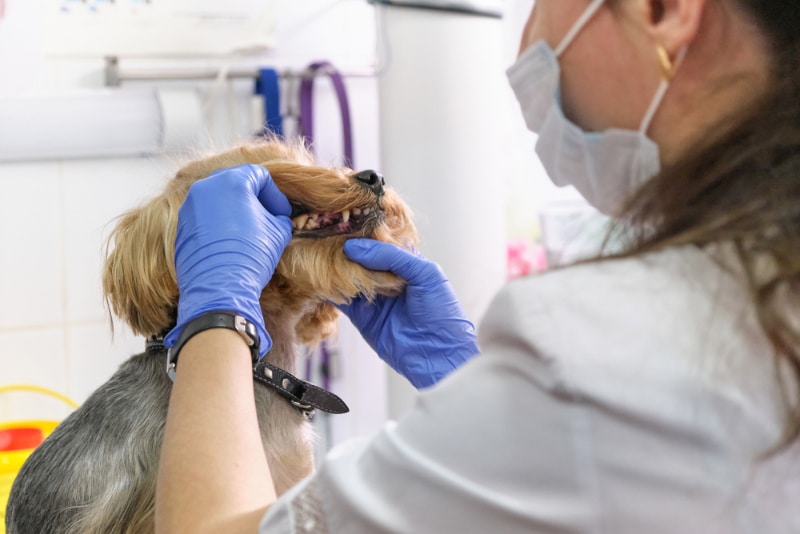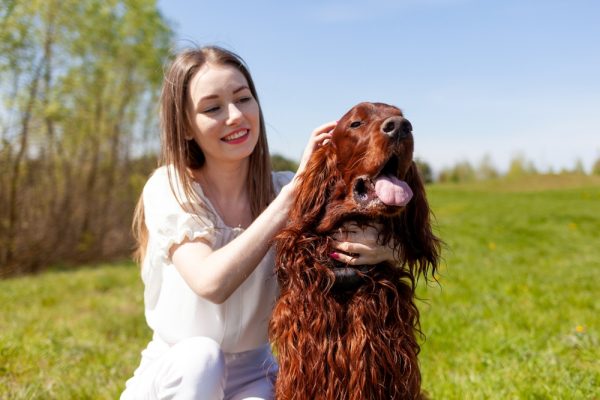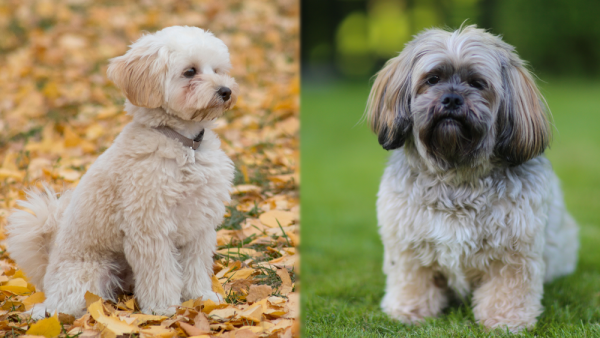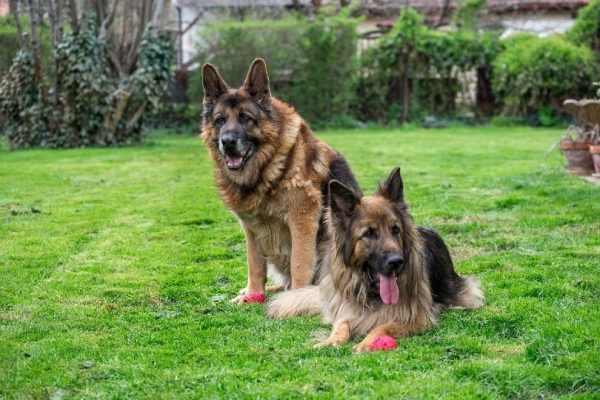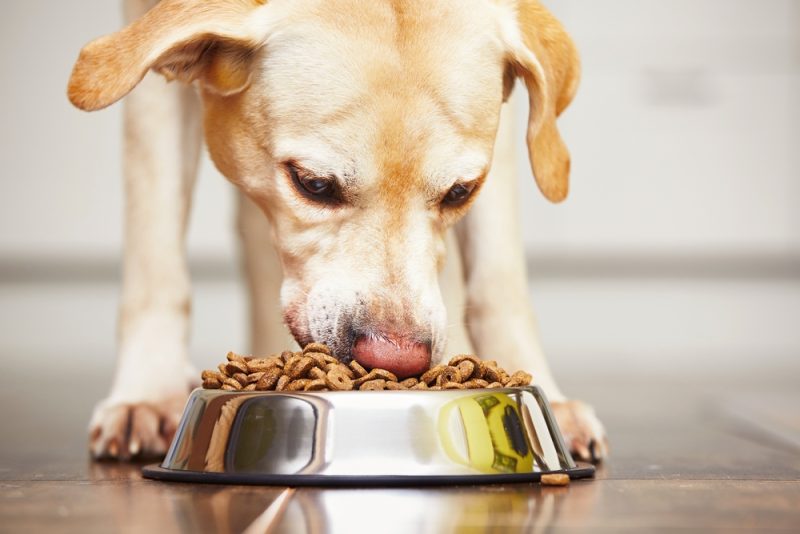It may be startling when you find a dog tooth on the floor. Your first thought is likely about your pet. Is it serious or an emergency? What should I do? This condition runs the gamut from normal to worrisome to worthy of immediate attention. Several factors play a role, including your pup’s age and health status.
Therefore, the answer depends on the cause. So, let’s find out what some potential causes are.

Puppies and Tooth Loss

Tooth loss is often normal in puppies. Dogs have two sets of teeth, not unlike humans. They grow 28 deciduous teeth when young. The growth starts around 3 weeks old. These puppy teeth make nippiness an especially undesirable trait.
As with humans, puppies start to lose those needle-sharp teeth around 3-4 months old to be replaced by 42 permanent chompers in their stead. During the process, your puppy may chew more in an effort to relieve mouth pain. You may find lost teeth around the house, but puppies often swallow them and pass them through without incident.

Tooth Loss in Adult Dogs
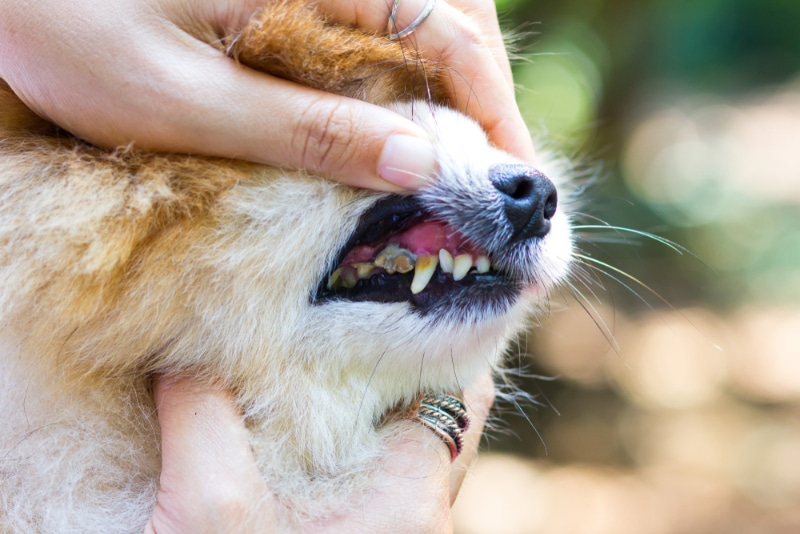
Once your dog gets their adult teeth, any tooth loss is considered abnormal. But that doesn’t mean it doesn’t happen. Adult dogs can lose teeth for a number of reasons, one being trauma. An injury directly impacting the teeth or head can cause tooth loss. Chewing on inappropriate materials can also break teeth. Providing your dog with appropriate chew toys is a must to help prevent injury to their teeth and mouth. Secondary bacterial infections resulting from injuries may also cause complications leading to tooth loss. Trauma to the mouth or head should be checked by a veterinarian.
Another problem is periodontal disease. This common disease results in inflammation that can compromise the tissues holding teeth in place. If severe enough, tooth loss can occur.
- Bad breath
- Reluctance to eat or difficulty eating
- Weight loss
- Swollen and red gums
- Drooling
Good dental hygiene is vital to prevent tooth loss. That means you need to be brushing your pup’s teeth or at least providing dental treats or a diet to help keep it under control. Regular veterinary checkups and dental cleanings are another important part of treating and preventing dental disease that can lead to tooth loss.
The American Veterinary Medical Association (AVMA) recognizes the severity of this disease with its awareness program with sponsorship of National Pet Dental Health Month every February. Many clinics offer discounted services for dental cleanings to keep your dog’s pearl whites looking their best. Remember that tooth loss is a sign that the disease is progressing at a dangerous level.
Occasionally, tooth loss can be due to things like sores or tumors in the mouth. So, If you’re finding dog teeth or if your dog is experiencing drooling, difficulty eating, or bleeding from the mouth, see your vet.
If you need to speak with a vet but can't get to one, head over to PangoVet. It's our online service where you can talk to a vet online and get the advice you need for your dog — all at an affordable price!

Final Thoughts
Tooth loss may have normal causes and present no concerns. Puppies lose their needle-sharp deciduous teeth as they age, which isn’t a problem. When it happens to adults, however, it can be an indication of a disease that warrants investigation and treatment. Dental care is a big part of your dog’s overall health, and it can improve your pup’s quality of life and reduce the risk of unnecessary pain.
See Also:
- Can Dogs Live Without Teeth? Adaptation, Prevention & Vet-Approved Caring Tips
- Does My Dog Have a Permanent Hole in Their Mouth? Our Vet Explains Oronasal Fistula
Featured Image Credit: Yavdat, Shutterstock
